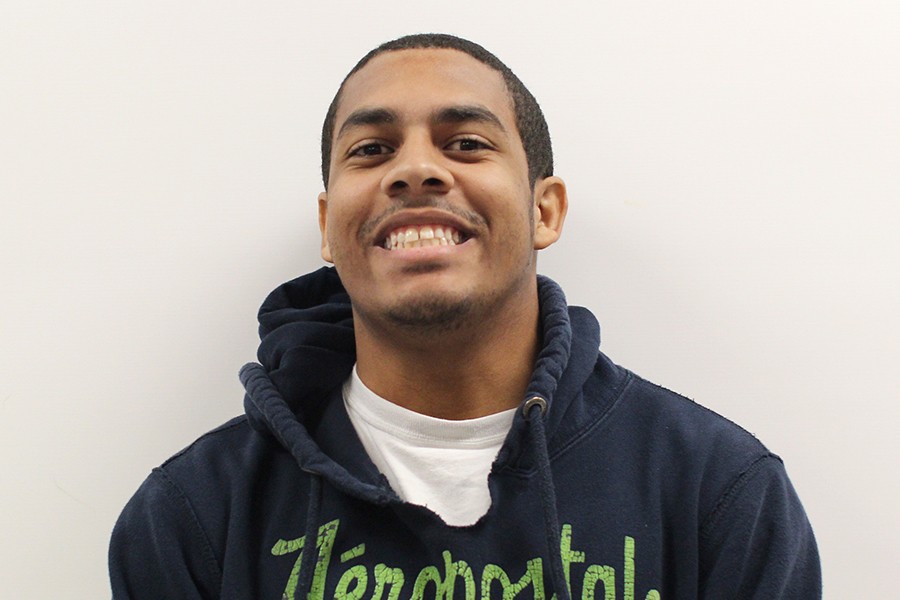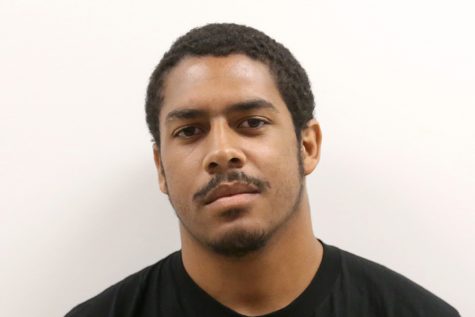Acceptance of self removes religious ties
Apr 11, 2016
My journey toward identifying as an atheist is representative of the struggle many teenagers face with self-worth and owning their thoughts and feelings.
An atheist is simply one who lacks a belief in any god. I also do not adhere to any religion. However, some atheists may adhere to a secular religion or philosophy.
It is not necessarily a big part of my daily life, like many atheists. I’m not wildly going around screaming at people how enlightened my existence is without god. But if the topic comes up in conversation, I express it.
Identifying as an atheist doesn’t necessitate any religious texts, values or customs. It is not a sticker or a badge. It is simply a fact about one’s thoughts. Atheism does not have much to do with daily life, unlike religions.
But for young atheists, this innocuous identification could become part of their daily lives due to the feelings of shame that manifest.
As a young person, it is incredibly important to build confidence in oneself and freely explore and grow. Building growing confidence is hard when an aspect of your thoughts is faced with ridicule, pity and exclusion.
In my case, I was raised in a family that is heavily Christian. I was never exposed to different faiths such as Islam, Buddhism, Taoism, Judaism or even the idea of having no faith. In my world it felt as if accepting Christianity was my only option, and because of that I felt constricted.
Like others, I’d be taken to church every week to sit through service. These services intend to answer questions, strengthen faith and convert nonbelievers — but they did the exact opposite for me.
The answers didn’t make sense as I gained more knowledge. My faith was stripped away as unsatisfactory answers were repeated.
As I began to get deeper into formulating my ideas about rejecting religion, stress started settling in. I wanted to express these thoughts. It was all fresh in my mind. I was young and excited to be finding my own answers.
Unfortunately, I felt afraid to step away.
Being in a Christian family, I felt like expressing my thoughts wouldn’t spur conversation among my family members or friends at church. I was convinced that all it would bring were antagonistic questions and possible exclusion.
The fear of exclusion is common among many young atheists. They have to watch what they say around their parents, friends and extended family members to avoid being treated differently.
During high school I moved to California, which is pretty far away from many of my religious family members in New Mexico. Being away from that environment, I was able to rid myself of that fear of exclusion and those feelings of shame.
I didn’t have to hide my lack of religion when the topic came up with friends. I was able to confidently state my thoughts.
A weight was lifted off my shoulders. It isn’t uncommon for other suppressed atheists to begin to identify as such when they leave their hometown for college or work.
Freedom of religion should be a social standard. Every person should be free to speak about their beliefs or lack thereof, with no shame or antagonistic attitudes from others. It should be fine if a person is Christian, Muslim, Roman Catholic, an atheist or doesn’t give a damn.




Aristotle Bean • May 23, 2016 at 11:00 pm
I suspect the author has a religion. I suspect he worships climate change. Or social justice. Maybe he worships at the altar of race, or BlackLivesMatter. Maybe he worships liberalism. or Obama. Or Marxism.
As Bob Dylan sings, “We all serve somebody.”
He mentions the shame young atheists feel for being atheists. Who created shame? Why would Nature or evolution create it? What is it’s purpose, unless its related to a moral one?
God believers do not need evolution to be false. But atheists need evolution to be true. That can be quite stressful.
Jean Bettanny • Apr 12, 2016 at 11:41 pm
Hi Xavier,
What a great essay! This reminds me of my own story – only it occurred in 1962. I was finally able to openly reject all the religious nonsense I had been brought up with when I left home for college and did not have the pressure to go to church (Methodist, in my case). It’s finally getting easier to be “out” as an atheist (only in the last 10 years though). Check out the Freedom From Religion Foundation website and get their amazing newsletter.